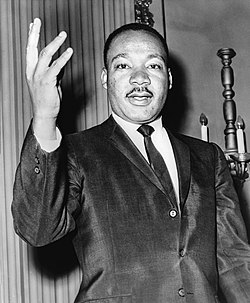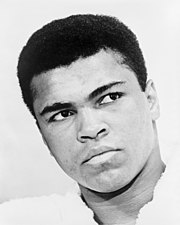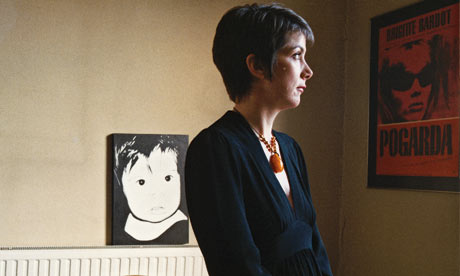I have blogged elsewhere on how I blamed the cats for buying a couple of books on a friends Amazon account, but now I have read the books I thought I would blog on the contents. The two books in question are also reviewed here and here (which is where I got the idea that I might like to read them!) by Jonny Baker.6MACS98SBPWA
Both books follow a similar structure, they start by explaining their subject in reference to something else (perhaps not that surprising as Caputo states that Derrida presents his views by reflecting on a previous text). Caputo uses the book "In His Steps" (which introduced "What Would Jesus Do" to the language) as a way of discussing Derrida whereas Smith uses The Matrix, Memento, O Brother, Where Art Thou and One Flew Over the Cuckoos Nest to discuss the general topic of Post Modernism, Derrida, Lyotard and Foucault respectively. So far so good, and as a non expert in these topics I found these explanations enlightening and exciting. They then go on to explore the implications for their analysis in the wider church, and at this point I started finding myself unconvinced. Smith believes that Post Modernism leads to Radical Orthodoxy and I have to say that I did not follow the link. Caputo retells the story of two books as examples of Post Modernism. The first "Diary of a City Priest" tells the story of a seemingly "normal" Catholic Priest in inner city Philadelphia, the other, "How (Not) to Speak of God", by Peter Rollins (who has starred on this page before) tells of an innovative worship collective in Belfast. Again I am not convinced that the preceding explanation leads to the examples - but of course one of the critiques of Post Modernism is that it can be used to justify anything! Not that I have a problem with that - after all, I have blogged on giving up certainty and control!
Below the fold a bit more in depth stuff!
Traveller in search of God looking for fellow travellers. Currently Priest in Charge, Hale with Badshot Lea Team Ministry, formerly an IS Manager in a large UK based food company.
Sunday, 31 January 2010
Saturday, 30 January 2010
Don't we like certainty!
"I was in perfect control of the car as it went into the ditch"
He was prepared to wreck his car, but not his self image of being in control.
In the west we have reached a situation when the illusion of being in control is sustainable. We are no more in control than we ever were, but we think that we are. And yet faith tells us that we are not - there is nothing that I can do to earn God's love, but it is there waiting to be enjoyed. We are not very good at enjoying either, being too busy "controlling" things to have time to enjoy them.
And yet I know that when I can let go (interesting choice of phrase) I am freer.
(I don't claim to be any better than anyone else, as readers of other posts in this blog will know!).
Friday, 29 January 2010
Sydney reinvents Vestments
What is requiring clergy to dress smartly in services other than a reinvention of vestments? After all the chasuble, alb and other vestments originated as posh wear in their day.
An article in the Church Times said that a Bishop in Sydney was complaining about the standards of priestly attire:
An article in the Church Times said that a Bishop in Sydney was complaining about the standards of priestly attire:
He believed that ministers should dress appropriately to the congregation style, “perhaps just a tad slightly higher, appropriate for their leader ship role, neither standing out at the top nor at the bottom”[I thought of illustrating this with a picture of a scruffy cleric, but apart from self portraits was unable to find one; I was also wary of causing offence J]
Thursday, 28 January 2010
Travelling not Arriving
This came in my daily email from Sojourners and I just loved it as a quote. It fits with Julie Burchill's favourite vicar:This life, therefore, is not godliness but the process of becoming godly, not health but getting well, not being but becoming, not rest but exercise. We are not now what we shall be, but we are on the way. The process is not yet finished, but it is actively going on. This is not the goal but it is the right road. At present, everything does not gleam and sparkle, but everything is being cleansed.
Martin Luther
the Reverend Gavin Ashenden of Sussex University, never says, "I am a Christian," but rather "I'm trying to be a Christian"(from an article in the Guardian).
This in turn fits with John Caputo in "What would Jesus Deconstruct" (which the cats bought) where he talks about the difference between Derrida's law and justice, and suggests that Kierkegaard could have written
"Oh my fellow Christians, there are no Christians", by which he was not remarking that the Danes had all recently become Hindus.The idea is that justice is unchanging, but unachievable, whereas law is achievable, but open to constant change. My interpretation of this is that total faith is unchanging, but unachievable, whereas church is achievable, but open to constant change. And it is important that we do not confuse the two!
If we contemplate infinity then funny things can happen (see previous post). It is at infinity/the end of time that total faith can be achieved, but in the meantime however many times we iterate we do not get there. In the same way that there is no such thing as a just law, so there is no such thing as a faithful church! Some churches may be more or less faithful than others, but all are in some way or other unfaithful - they cannot be anything but.
Wednesday, 27 January 2010
Undefendedness
Simon Walker is currently writing a new book, and is blogging about it here. Regular readers (?) of this blog will know that I am a fan of his books on leadership and have blogged directly or indirectly on them here and here. I think this is a good example of undefendedness. He originally set up his blog elsewhere, but within 24 hours of receiving feedback that people would like things like an RSS feed he moved it to deliver!
The new blog contains some great material already, and as I write there are only three entries!
There is one on whether having been converted we should now spend our energy serving (here). My initial reaction to it is that the idea didn't particularly ring true for me personally (or perhaps it does - though I am trying to change it), and I wonder whether it is a case of faith development. Most people who have heard of faith development know of the Fowler model, but there is also the Hagberg/Guelich model which suggests that the serving comes before having a crisis of faith, which then leads to a deeper faith. I have also heard it suggested that some churches keep people from having that crisis to keep them productive, although if I am charitable it would be to keep them from the crisis - but for me the crisis is a fundamental part of Christian growth.
There is also a super post on stillness.
Tuesday, 26 January 2010
Blokey Christianity
A friend has blogged on "Being a Bloke"and that set me thinking. If I take his thesis that blokes (and I think here we are talking a different species to just men - there are other qualifications) don't like the "frilly bits" in life (except around the bottom of their cottas), then how as a church are we going to market ourselves to "blokes"? (Irony intended)
There is a more serious issue, and another friend has blogged on it here, and there was an article in the Church Times a while back about it with a critique in the letters the following week. Then there was the story of the Welsh vicar who resigned, apparently for swearing - I say apparently because if every vicar who swore got sacked I don't think there would be many left - certainly few of my acquaintance - and that would also apply to at least some of the bench of Bishops - I was told of one who used the f word twice in a confirmation sermon, though I wasn't told the context. I was also present at a sermon when the now Bishop of Kimberley and Kuruman preached that the f word wasn't used enough in church, although he went on to clarify that for him f was for "fun".
But I digress, the church does give the impression that it isn't for "blokes", for me the question is whether that is because "bloke" culture is incompatible with the church, or because we have fallen into bad ways. If we want to help bring about the Kingdom (which I rather think is what Jesus wanted), then some of the blokey attributes might just help us with that.
As an afterthought... Do we think Jesus would be more at home in church or with blokes?
I recently saw a great video parable (h/t Jonny Baker) - Wild Thing (and I love Elvis was good too) which might speak into this space.
There is a more serious issue, and another friend has blogged on it here, and there was an article in the Church Times a while back about it with a critique in the letters the following week. Then there was the story of the Welsh vicar who resigned, apparently for swearing - I say apparently because if every vicar who swore got sacked I don't think there would be many left - certainly few of my acquaintance - and that would also apply to at least some of the bench of Bishops - I was told of one who used the f word twice in a confirmation sermon, though I wasn't told the context. I was also present at a sermon when the now Bishop of Kimberley and Kuruman preached that the f word wasn't used enough in church, although he went on to clarify that for him f was for "fun".
But I digress, the church does give the impression that it isn't for "blokes", for me the question is whether that is because "bloke" culture is incompatible with the church, or because we have fallen into bad ways. If we want to help bring about the Kingdom (which I rather think is what Jesus wanted), then some of the blokey attributes might just help us with that.
As an afterthought... Do we think Jesus would be more at home in church or with blokes?
I recently saw a great video parable (h/t Jonny Baker) - Wild Thing (and I love Elvis was good too) which might speak into this space.
Monday, 25 January 2010
Personality Type and Blogging
I was discussing blogging with a friend, and it was suggested to me that my blog is different from my radio show (sounds impressive - just a one off 1 hour show on Radio Africa, an RSL radio station, this year - it can still be heard here if you want to see for yourself - Reverend Alan - third one on the list).
We got into a discussion about whether this was about personality types. In Myers Briggs terms I am an ENFJ (for what that is worth, over the past 10 years I have been an INTP, INFP, ENFP as well! There is then a debate about whether your MBTI stays the same over time or whether it can change - from personal experience I lean to the fact that it stays the same - but our perception of it can change. As I stripped away the masks that I had built I discovered who I had always been). If you scroll to the bottom of this page you will see the following:
The other approach we took was to think about whether it somehow corresponded with Simon Walkers description of Front Stage and Back stage, although as this is more about what we do and don't display that perhaps doesn't work.
The question this leaves me with is whether other bloggers find that they are unintentionally different on their blog and in other activities (which I am not trying to be - or even trying not to be!).
We got into a discussion about whether this was about personality types. In Myers Briggs terms I am an ENFJ (for what that is worth, over the past 10 years I have been an INTP, INFP, ENFP as well! There is then a debate about whether your MBTI stays the same over time or whether it can change - from personal experience I lean to the fact that it stays the same - but our perception of it can change. As I stripped away the masks that I had built I discovered who I had always been). If you scroll to the bottom of this page you will see the following:
What we wondered was whether blogging is an Introverted activity, and hence my Intuition and Thinking come into play, whereas radio is an Extraverted activity and hence the Feeling and Sensing come out more. This is certainly not a scientific theory, more a feeling (so that self destructs then - blogging as a Feeling activity J).Dominant: Extraverted FeelingAuxiliary: Introverted IntuitionTertiary: Extraverted SensingInferior: Introverted Thinking
The other approach we took was to think about whether it somehow corresponded with Simon Walkers description of Front Stage and Back stage, although as this is more about what we do and don't display that perhaps doesn't work.
The question this leaves me with is whether other bloggers find that they are unintentionally different on their blog and in other activities (which I am not trying to be - or even trying not to be!).
Sunday, 24 January 2010
How to Paint a Flugel Horn
Can you paint an infinite area with a finite amount of paint? I am posting this for two reasons - firstly I just love playing with the idea of infinity, and secondly because I want to blog more about infinity in relation to eschatology and faith, and I want to use this as a footnote! If you really do not like maths please look away now :)
An unwound flugel horn is made by rotating the graph of y=1/x around the x axis from 1 to infinity.
This gives it the unusual property that it has an infinite area, but a finite volume. Therefore whilst it would require an infinite amount of paint to paint it, which can't be done, you can pour a finite amount of paint into it and tip it out to paint the flugel horn!
Similar logic applies to the problem of the tortoise and the hare. If the tortoise has a head start then whenever the hare reaches the point at which tortoise was when the hare started then the tortoise has moved further on - so the hare can never overtake the tortoise. http://www.shodor.org/interactivate/activities/Tortoise/
For serious anoraks the maths is below. All others look away now :)
The area of a flugel horn is the integral of 2π 1/x from 1 to infinity. This is 2π ln(x) which is infinite.
The volume is the integral of π (1/x)2 from 1 to infinity. This is -π/x which is finite because the infinity is a divisor.
The thing about the tortoise and the hare is that the infinite number of iterations take place in a finite time and distance. It is a little like the fact that the sum of 1 + 1/2 + 1/4 + 1/8 .... tends towards 2.
An unwound flugel horn is made by rotating the graph of y=1/x around the x axis from 1 to infinity.
This gives it the unusual property that it has an infinite area, but a finite volume. Therefore whilst it would require an infinite amount of paint to paint it, which can't be done, you can pour a finite amount of paint into it and tip it out to paint the flugel horn!
Similar logic applies to the problem of the tortoise and the hare. If the tortoise has a head start then whenever the hare reaches the point at which tortoise was when the hare started then the tortoise has moved further on - so the hare can never overtake the tortoise. http://www.shodor.org/interactivate/activities/Tortoise/
For serious anoraks the maths is below. All others look away now :)
The area of a flugel horn is the integral of 2π 1/x from 1 to infinity. This is 2π ln(x) which is infinite.
The volume is the integral of π (1/x)2 from 1 to infinity. This is -π/x which is finite because the infinity is a divisor.
The thing about the tortoise and the hare is that the infinite number of iterations take place in a finite time and distance. It is a little like the fact that the sum of 1 + 1/2 + 1/4 + 1/8 .... tends towards 2.
Saturday, 23 January 2010
Damned lies and statistics
This article summarises the latest statistics from the Church of England, and is not much different in tone from others that you can find. However the point that I want to make is that we know that church attendance is falling, among other reasons that is why Fresh Expressions are being set up.
So, we report that attendance is falling - either we know the figures for Fresh Expressions and aren't including them (and I can see no reason for that) or we don't - so we have no idea whether overall attendance is rising or falling - but then I suppose a headline of "Church of England doesn't know what it is doing" isn't news!
Title quote: Lies, damned lies, and statistics
So, we report that attendance is falling - either we know the figures for Fresh Expressions and aren't including them (and I can see no reason for that) or we don't - so we have no idea whether overall attendance is rising or falling - but then I suppose a headline of "Church of England doesn't know what it is doing" isn't news!
Title quote: Lies, damned lies, and statistics
Friday, 22 January 2010
The cats are innocent
A friend of mine has blogged how she bought some books by accident and that a friend (ahem - yours truly) blamed the cats. I have recently been reading the offending books, as they were ones that I thought looked interesting and memories are now coming back that perhaps it wasn't the cats fault after all! I have a vague recollection of using her computer to browse the web while she was busy one day. If I see interesting looking books while doing that I "buy" them from Amazon and then, whenever I place an order, I review what is in my basket and see whether I really want it.
Looks like the second part didn't happen J.
When this post was initially made I had no idea it was me - then as I browsed the books I started to wonder - how clever of the cats to buy something that interested me! Finally last night I went looking for evidence and found these two blog entries ("What would Jesus Deconstruct?" and "Who's afraid of Postmodernism?") and vaguely remembered reading them a few months ago - so problem solved - as usual with computer glitches it was a user error (bitterness from a past life coming throughJ) or the "nut on the end of the keyboard" as we used to say.
The moral of this story - "check the contents of your basket before the check out - you never know when the children have put some sweeties in it".
Thursday, 21 January 2010
To be or not to be real?
I have been following an interesting thread on the Naked Pastors blog, which has also drawn comment elsewhere, about whether pastors should share their true thoughts with others, or whether they have to "keep up appearances" for the sake of their congregation.
It struck me that a lot of the debate centres around people's understanding of truth. One of the comments was "You can’t lead people in a truth if you don’t know what that truth is" - but that in itself is making an assumption that truth is the same for all of us. Now I know that that will condemn me in the eyes of many, but whilst I do believe that objective truth exists, I don't think that we can know what it is this side of the grave. An example of this comes to mind - one person is in Canada and another in England and they ask you how to get to the Naked Pastor's church (say) you cannot give both the same detailed instructions - you either have to get them into the same place to start with (and in a congregation that just isn't going to happen unless everyone becomes a clone) or give some generic description, perhaps like the name of the local airport. My faith is not the same faith that it was yesterday and it won't be the same tomorrow - so how can I point people to a destination that I am heading towards but at which I haven't yet arrived?
The alternative is that I pretend that I have that certain faith that you want me to have. 25 years ago I was in a meeting where I expressed some of my struggles with faith. I was firmly told that the church would be better off without people like me, and that I should either believe things as they were or get out. For over 20 years that memory stayed with me and I kept my head down, building masks and shelters to keep me safe - I knew that there was something in the church that I was searching for, but... More recently I have discovered that those very masks and shelters kept me further away from God, and that it is the stripping away of all the pretence and being the real me that brings me closer to God - the real me with my questions, my struggles, my sin. Having discovered that I believe that it would be hypocritical not to share that with anyone, let alone my congregation.
If your model of faith and truth is that it is something that the pastor has and which he is charged to pass on then of course you will find the Naked Pastor a challenge. If however you see faith as a journey leading ever onwards then a pastor who is journeying too and is prepared to share their journey, with all the nasty bits, is encouraging and one who knows the truth isn't helpful.
It struck me that a lot of the debate centres around people's understanding of truth. One of the comments was "You can’t lead people in a truth if you don’t know what that truth is" - but that in itself is making an assumption that truth is the same for all of us. Now I know that that will condemn me in the eyes of many, but whilst I do believe that objective truth exists, I don't think that we can know what it is this side of the grave. An example of this comes to mind - one person is in Canada and another in England and they ask you how to get to the Naked Pastor's church (say) you cannot give both the same detailed instructions - you either have to get them into the same place to start with (and in a congregation that just isn't going to happen unless everyone becomes a clone) or give some generic description, perhaps like the name of the local airport. My faith is not the same faith that it was yesterday and it won't be the same tomorrow - so how can I point people to a destination that I am heading towards but at which I haven't yet arrived?
The alternative is that I pretend that I have that certain faith that you want me to have. 25 years ago I was in a meeting where I expressed some of my struggles with faith. I was firmly told that the church would be better off without people like me, and that I should either believe things as they were or get out. For over 20 years that memory stayed with me and I kept my head down, building masks and shelters to keep me safe - I knew that there was something in the church that I was searching for, but... More recently I have discovered that those very masks and shelters kept me further away from God, and that it is the stripping away of all the pretence and being the real me that brings me closer to God - the real me with my questions, my struggles, my sin. Having discovered that I believe that it would be hypocritical not to share that with anyone, let alone my congregation.
If your model of faith and truth is that it is something that the pastor has and which he is charged to pass on then of course you will find the Naked Pastor a challenge. If however you see faith as a journey leading ever onwards then a pastor who is journeying too and is prepared to share their journey, with all the nasty bits, is encouraging and one who knows the truth isn't helpful.
Wednesday, 20 January 2010
More thoughts on Work!
I once read that an artist is an artist because they decide they are, and I decide that this could apply to being Christian - I am a Christian because I choose to be.This was said in Sundays sermon, and apart from being a great quote it also set me thinking that work is what I decide it is! I have been so used to work being what someone else decides is it that I forgot that I am now the arbiter! It is certainly far harder now to determine what is work than it used to be when I travelled to an office and worked when I was there and didn't when I wasn't (I was quite strict with myself, taking work home about twice in 30 years, though I might have stayed late in the office).
In a previous post I was challenged on why I had blogged on this topic, and after some thought decided that my answer was worth another blog!!! So I had better at least answer the original question. The question posed was:
I guess my first question is why are you asking?I think I was posing the question about how much I work, and what counts as work at least in part because a friend had challenged me on that. That came about because I had just had a post Christmas break and had recognised (again) that I had been overdoing it beforehand - something that I have recognised just about every holiday for the past 30 years. When I said that this time it would be different I was then challenged with the Einstein quote:
I don't really believe there are 'one size fits all' answers.. hence if someone is asking the question it suggests that they are not happy with the level of work because they are stressed or because they feel guilty because they are not stressed?
Insanity: doing the same thing over and over again and expecting different results.So am I going to do anything different? I don't know! Part of the problem is that things crop up that I want to do, and I can see how I can fit them in - but what suffers is "vegging" time - perhaps not very yuppy (link for the younger readers), but something that I believe is necessary.
I have wondered about following some advice given to me, in story form, by a wise old priest:
When a monk is hoeing the cauliflowers, and the bell for chapel goes with one cauliflower left, does he put down the hoe and go to chapel, or does he hoe the final cauliflower and run to chapel?Of course the right answer is to put down the hoe. And yet for years I have worked by doing things when I was in the mood for that task - I felt and still feel that it is better to do a particular task when I have the energy for it. In my previous career I went home as a sort of putting down the hoe - but it was usually when the last cauliflower was hoed. Now of course my work is always there, and there is a greater overlap between work and leisure - after all, I was doing this work voluntarily on top of my other job before becoming full time.
I think where I have reached is that I am paid not to work - so what I do is largely my own choice. Given that, then I need some way of monitoring myself. This post gave me some ideas, as although I don't find the issues raised there a particular issue I realised that there are times when I become brain dead, and there are times when I am tempted to cut back on family and friends - so the answer is to take time out when brain dead and to cut back when family and friends aren't getting enough time.
Tuesday, 19 January 2010
What gets measured gets done...
I have read about Cameron's new policy on teachers, and it reminded me of the old management saying "what gets measured gets done" - and the dangers in making sure that you measure the right things. In this case the proposal is to measure the class of degree that someone gets. The article above well makes the point that what is required is good teachers, not necessarily academic ones. For example why do you require a 2.1 to teach maths to 11 year olds? Surely if we want better teachers it would be better to introduce a practical teaching qualification and require good marks in that. After all, I didn't spot him requiring all Premiership footballers to have degrees in Sports Science, or all politicians to have them in politics.
The other thing that surprised me about the proposal is that it came from the Tories - there appears to be a shortage of people (even qualified teachers) prepared to teach (articles here). Surely the party of "the market" should be using financial incentives to increase the quality of teachers, not socialist intervention measures!
The other thing that surprised me about the proposal is that it came from the Tories - there appears to be a shortage of people (even qualified teachers) prepared to teach (articles here). Surely the party of "the market" should be using financial incentives to increase the quality of teachers, not socialist intervention measures!
Monday, 18 January 2010
What is work? And how much should a Vicar do?
Talk to many clergy and you will hear comments like "what private life", or in the worst cases boasting of how many hours a week they work (the best example I heard of this was counting time in the gym, even though they didn't talk to anyone, because they might have done). Our Diocesan Bishop, John Pritchard, wrote, in "The Life and Work of a Priest", that he thought that priests should work 50 hours a week - equating it to a "normal" job plus the time that a layperson would give voluntarily.
Having given a significant amount of time voluntarily as I trained whilst working full time, my reaction was that the time that I gave was different from work - the old saying "a change is as good as a rest" comes to mind. To be fair he also suggests that we should look for a "6th day ministry" - doing something that energises us outside the parish, so perhaps the balance is restored. However, another book ("If you meet George Herbert on the Road...") refers to the Bishop's book as "The Life and nervous break down of a priest".
During training we were offered two models for working - one was to divide the day into 3 and work 2 of them - the other to divide it into 5 and work 4 - we weren't told how long these should be, but I have figured that 2x4hours or 4x2hours are both 6x8 hour days = 48 hours - conveniently the European Working Time Directive restricts working to a 48 hour week which was also pointed out to us - although of course as Office Holders we are not subject to it.
So - having worked out how many hours - what is work! That might seem a simple question, but many clergy I have spoken with have difficulty working this one out. One curate of my acquaintance has even been heard to say "that's not work, I enjoy it". And of course there is the whole question of being versus doing - we are priests all the time - whether in a full time or part time role, whether paid or unpaid. So what do you think? Are any or all of the following work?
Having given a significant amount of time voluntarily as I trained whilst working full time, my reaction was that the time that I gave was different from work - the old saying "a change is as good as a rest" comes to mind. To be fair he also suggests that we should look for a "6th day ministry" - doing something that energises us outside the parish, so perhaps the balance is restored. However, another book ("If you meet George Herbert on the Road...") refers to the Bishop's book as "The Life and nervous break down of a priest".
During training we were offered two models for working - one was to divide the day into 3 and work 2 of them - the other to divide it into 5 and work 4 - we weren't told how long these should be, but I have figured that 2x4hours or 4x2hours are both 6x8 hour days = 48 hours - conveniently the European Working Time Directive restricts working to a 48 hour week which was also pointed out to us - although of course as Office Holders we are not subject to it.
So - having worked out how many hours - what is work! That might seem a simple question, but many clergy I have spoken with have difficulty working this one out. One curate of my acquaintance has even been heard to say "that's not work, I enjoy it". And of course there is the whole question of being versus doing - we are priests all the time - whether in a full time or part time role, whether paid or unpaid. So what do you think? Are any or all of the following work?
- Private prayer
- Time vegging after a funeral
- Reading news, books, blogs
- Talking to friends about things which would be work if they were parishioners
- Networking with fellow clergy
- Watching films - I once got a sermon illustration from Home Alone 2, and Avatar had spiritual themes
- Writing books - not that I have pretensions, but plenty of clergy (particularly Bishops) are also authors
Sunday, 17 January 2010
Does the "Great Man" theory of history work?
In a recent Church Times Simon Parke wrote about salary differentials. The day I read it I had been talking at lunch with some friends about how university rankings are different, now my children are applying, from when I applied. Then Paul Vallely wrote about "Great Men" (sic) (may not be available free until later). This set me wondering what difference good leadership makes. Why is it that some universities have got better and others have got worse (or have they? Is it just that some have got better?). The same of course applies to all institutions - how much difference can the person at the top make? Certainly the press seem to think that the "right" person makes a difference - stories of strong leaders appointed to turn around failing "whatevers" abound. And I suspect most of us will recognise the reverse, stories of companies, churches, schools where the appointment of a new leader has lead to a rapid decline in performance.
In my time in industry I worked for the same company for about 20 years (not the same PLC, the same Ltd) and during that time saw fluctuations in our performance - received wisdom was that the industry was cyclic. Significant capital investment was required in a market where sales had been gently declining for years. The simple explanation was that when times were good external entrants saw a good return and entered the market - however more capacity meant a reduction in prices (simple economics), until the pain became too great and somebody removed capacity from the market, boosting profitability again. For many years we assumed that we were prey to external forces, until latterly one of our leaders started looking for ways to manipulate the supply in the industry. I think the jury is out on whether it succeeded in the long term - but it is an example of someone changing perception.
The alternative view however, is expressed by David Taylor and Peter Rollins. In "The Fidelity of Betrayal" (reviewed here) Peter Rollins discusses the idea that the role of a leader is to refuse to lead! That there is a need for a leader, because without one someone would step in and lead, but that their role is to not lead.
Similarly in the "Naked Leader" David Taylor encourages leaders to give power away. To the extent that he suggests leaders should always give the credit to their staff and take the blame on themselves.
Of course the two ideas are not in conflict! After all, the idea of managing supply need not have come from the person at the top, the management slogan "free brain with every pair of hands" has been around for ages, and refusing to lead encourages others to take responsibility themselves rather than waiting to be told what to do.
So where does that leave the idea of the "Great Man"? Perhaps the answer is that one person can make a difference, but not by being a "Great Man", but by releasing the power and creativity in others. Perhaps the reason that things can so quickly go wrong is because the desire for control (referred to in yesterdays post about euthanasia) restricts the ability of everyone to contribute.
Saturday, 16 January 2010
Euthanasia - What do you think?
I stumbled across this article in the Guardian and it reminded me of the time I read one of Shelia Cassidy's books -I can't be sure, but I think it was either "Sharing the Darkness: The Spirituality of Caring" (reviewed here) or "Light from the Dark Valley: Reflections on Suffering and the Care of the Dying". One of these was a book which changed my view on euthanasia from being for it to being against it - though I have to admit that I have forgotten why! Here is an interview, which perhaps helps to explain.
That said what struck me in this article was the idea that the reason that people want euthanasia for themselves is that they cannot bear to lose control - or perhaps more accurately, in my view, acknowledge that they never had any control!
If you are interested in hearing Sheila Cassidy, she will be speaking at St Michael and All Angels, Amersham on the Hill on 16th September 2010, more details here.
That said what struck me in this article was the idea that the reason that people want euthanasia for themselves is that they cannot bear to lose control - or perhaps more accurately, in my view, acknowledge that they never had any control!
If you are interested in hearing Sheila Cassidy, she will be speaking at St Michael and All Angels, Amersham on the Hill on 16th September 2010, more details here.
Friday, 15 January 2010
Living Faith
Living Faith is the current "vision for the Diocese of Oxford" and has 5 points (I am not going to repeat them here, if you want to know more follow the link). This year the focus is on "Sustaining the Sacred Centre". Today's reading from the Rule of Benedict (which won't be there tomorrow) contains the following commentary from Joan Chittister :
In monastic spirituality, then, leadership is not intent on making things right; leadership is intent on making life right. The number of families who have succumbed to the notion that giving their children everything that money can buy assures their happiness need this insight from of monastic spirituality. The number of business people who have put their entire lives into developing their businesses instead of their quality of life, need this insight from monastic spirituality. The number of young people who have learned to believe that success depends on having it all, may need this monastic lesson in life. The Rule of Benedict teaches us that nothing, not even a monastery, is worth the loss of the development of the important things in life, the spiritual things in life.And perhaps I would add the number of churches that depend on programs... This is as much a criticism of myself as of others, as when our church were discussing this I was all geared up to institute lots of programs - I have worked with several management consultants and could see how the programme would fit together. Luckily Bishop John was quoted as saying that this was about asking people to "deepen their enjoyment of God, and to recognize God's presence in everyday life" and we (and I) recognised that without first sustaining the sacred centre nothing else of worth would happen.
Shame after reading the Rule of Benedict for about 8 years that I hadn't noticed the above quote sooner!
Thursday, 14 January 2010
Organisations & Structures

I've been following the stories about clergy bullying and found my Bishops blog on this thought provoking. During my career in industry I have seen a lot of change and an increase in bureaucracy, and I know a lot of teachers and have heard about it in teaching too. My observation on this is that bureaucracy raises the standard of the worst, but hampers the best - it standardises the experience.
My question - to anyone out there! - is how, as the Church of England moves to common tenure, we can avoid the worst aspects of appraisals. When the system works well it is brilliant, but when it works badly it is dire. For it to work well there needs to be an understanding of what it is and isn't supposed to be about - in both appraiser and appraisee - as well as a good practical understanding of the process. Comments I have heard from clergy involved in the nascent process suggest that this is not yet the case.
At one level I don't want to argue against greater competence, but at another the following spoke to me:
Once chosen, it is their weakness itself that becomes the anchor, the insight, the humility and the gift of an abbot or prioress, a pope or a priest, a parent or a director. But only if they themselves embrace it. It is a lesson for leaders everywhere who either fear to lead because they know their own weaknesses or who lead defensively because they fear that others know their weaknesses.(from Joan Chittister's commentary on the Rule of Benedict - changes daily - so won't be there for another 4 months!).
If we get into a process of appraisal will we find ourselves wanting to hide our weaknesses?
This perhaps also links to the Naked Pastor's post today, and particularly the comment from a person whose church has someone reading their clergy blogs for comments which are "theologically naughty or somehow subversive to the organisation".
By adopting management processes from an environment where consistency is valued are we in danger of becoming consistent? (For clarity I think this is a bad thing - and don't get me started on the Anglican Covenant!!!!!).
Wednesday, 13 January 2010
Pressure of Work

Lord God, before I am exhausted from earning every last penny, filling every last second, pushing every last boundary, show me a better way.This quote comes from the Christian Aid daily Bible reading web site and I think it contrasts with todays message from the variable site I have quoted before - and I like it!
When I was employed in industry I used to fight against the always active approach - and so often I saw people busy doing things, which if they had stopped and thought and found another way would have been so much easier. But perhaps that was my downfall. Now in theory I have the ability to take that time - Bishop Stephen reminded us at Diocesan Synod that a stipend is money so that we do not have to work - I still find that when I reach a holiday I am exhausted and need to just stop. Why is it I have this ability to think that I can "just fit that one more thing" in? I have a friend who says that if you open a new door then you have to close another - and they are no better at it than I am!
Anyone out there got the answer? And I'm not looking for a time management system - that defeats the objective!
Monday, 11 January 2010
Why bad is good!
 In the Queen's Speech HM suggested that 2009 was a year best forgotten, and I have heard others echoing the sentiment. Then, this morning on a web site that I find patchy I found "select an encouraging thought from your scriptural self-talk list".
In the Queen's Speech HM suggested that 2009 was a year best forgotten, and I have heard others echoing the sentiment. Then, this morning on a web site that I find patchy I found "select an encouraging thought from your scriptural self-talk list".I find myself wanting to rage against this idea that everything should be OK, and we should never feel bad. Sometimes it is right to feel bad, sometimes it is even good to feel bad! If you think about the Kübler-Ross 5 stages of Grief then without the feelings of Anger and Depression you don't reach the stage of Acceptance. If life consisted only of good things then we wouldn't grow in the same way.
Friday, 8 January 2010
What have these people got in common?





People I admire - Read on!
Following on from my post on what education is for, and a number of blogs I read on priesthood (which I can't now find!) I started mulling over what being a priest is about. Right now my working definition is to become the kind of person that I described in my education post, and to help and
encourage others to do the same. This might seem a long way from the Gospel, but I believe that that is what Jesus was doing (as a long aside I was interested to read that the originator of WWJD was using it to stimulate social action, and the book which told me that suggests that it should only be used for yourself - not others - see left).
This then set me thinking about the "Undefended Leader" (also for sale from here) a book that was highly recommended during some training. This in turn set me thinking about politicians I have admired, not necessarily for their politics, but for their approach. Interestingly they are all from the extremes: Enoch Powell, Michael Foot, and Tony Benn. I think that what I admired about all of them is that they were prepared to speak their mind - regardless of who it upset. They also showed some ability to change their mind, with at least two of them showing changes in political views over the life. This ability to speak your mind seems to be something that today's politicians have lost, and I suspect that this prevents those who would speak their mind from entering politics - a great shame to my mind.
This is also a quality that I think is shown by some of the other people I admire: Nelson Mandela, Gandhi, Martin Luther King and Muhammad Ali, all of whom stood for what they believed and suffered in one way or another.
As I was mulling all this over I read todays excerpt from "Insights for the Ages" (it changes daily, so won't be there later): "Adulthood is a matter of being completely open to the insights that come to us from our superiors and our spouses, our children and our friends, so that we can become more than we can even begin to imagine for ourselves."
I can't remember where I found it, but there is a quote along the lines that if Jesus were us he would be the best us we could be - not someone else. I think that for all of us our calling is to be the best us we can be. And I can think of no higher calling that to do that and to try to help others to do the same.
Labels:
Benedict,
Faith,
Leadership,
Personal Development
Thursday, 7 January 2010
What is education for?
This has been prompted by conversation with my daughter - for whom this is an essay assignment. You will be pleased to hear that I don't intend to match her 5,000 words, but chatting about it made me question what I thought.
At one level I want to say that it isn't "for" anything, or perhaps that it is for its own sake. Having been a pure mathematician, one of those who delight that there is no practical use for their study, I would certainly reject the idea that it is for the development of knowledge of facts. This of course seems to go against government policy - but I would want to argue that that is not education but training!
Perhaps a better way into this is to ask what an educated person looks like - and here I surprise myself - I would have thought that I would be defining this in terms of knowledge, but find myself doing so in terms of skills and abilities. An educated person is someone who knows what they think and why, is capable of expressing it, is prepared to change their mind in response to a challenge, but doesn't change their mind in response to emotional blackmail. I have probably left something out, but you get the drift. The actual facts of any subject seem to be less and less important as reference material is more and more available.
Of course this looks nothing like our current education system, with its teaching to the tests (which don't prove that people are getting more intelligent, just that we are better at taking the tests).
Interestingly these are also the qualities that I think are required for employment, although I don't think that delivering good employees should be the aim of education. The current policies deliver people with knowledge of stuff, rather than themselves, and businesses then have to train people in the skills that they require.
At one level I want to say that it isn't "for" anything, or perhaps that it is for its own sake. Having been a pure mathematician, one of those who delight that there is no practical use for their study, I would certainly reject the idea that it is for the development of knowledge of facts. This of course seems to go against government policy - but I would want to argue that that is not education but training!
Perhaps a better way into this is to ask what an educated person looks like - and here I surprise myself - I would have thought that I would be defining this in terms of knowledge, but find myself doing so in terms of skills and abilities. An educated person is someone who knows what they think and why, is capable of expressing it, is prepared to change their mind in response to a challenge, but doesn't change their mind in response to emotional blackmail. I have probably left something out, but you get the drift. The actual facts of any subject seem to be less and less important as reference material is more and more available.
Of course this looks nothing like our current education system, with its teaching to the tests (which don't prove that people are getting more intelligent, just that we are better at taking the tests).
Interestingly these are also the qualities that I think are required for employment, although I don't think that delivering good employees should be the aim of education. The current policies deliver people with knowledge of stuff, rather than themselves, and businesses then have to train people in the skills that they require.
Wednesday, 6 January 2010
Prejudice - just how acceptable is it?
 A friend sent me the picture to the left and I made some joking response about hoping they weren't looking for a job in customer services. I was then challenged back about prejudice. This set me thinking about it - how many people in customer service will there be with that kind of haircut? And why is that? Are companies ethically able to discriminate against sartorial choices?
A friend sent me the picture to the left and I made some joking response about hoping they weren't looking for a job in customer services. I was then challenged back about prejudice. This set me thinking about it - how many people in customer service will there be with that kind of haircut? And why is that? Are companies ethically able to discriminate against sartorial choices?The laws on discrimination have been on the basis of things which people cannot change, eg race, sex, sexuality (I accept that this is not a choice), but not on things like religion - although this appears to be coming. But the push back at my weak attempt at humour has made me question whether there are issues about choice. What is it about a pink mohican that makes the owner unsuitable for a customer service role? Is it the prejudice of the employer, or is the employer predicting what customers will think and wanting to control their own image to meet expectations? Is it right for an employer to base their employment policies on the prejudices of others, or do they have a moral duty to fight against prejudice?
There is an argument that companies have no moral duty - they are legal entities with their responsibilities set down by law. Perhaps that is the way it is, and pressure has to be brought as it has been in the past over involvement in South Africa, or unfairly traded goods.
As usual, more questions than answers!
Tuesday, 5 January 2010
Mistakes - Good or bad?

Have you ever worked in an environment where mistakes weren't tolerated? Despite Einstein's quote: "Anyone who has never made a mistake has never tried anything new" there are still places where mistakes are not welcome. This story from a web site I find patchy, but interesting enough to persevere with:
A sign in a high-pressure sales office brings a smile: 'Do you like to travel? Do you want to meet new friends? Do you want to free up your future? All this can be yours if you make one more mistake.'
If you click through to the full story it also talks about how mistakes can happen because people will not challenge their "betters" for any number of different reasons. In Malcolm Gladwell's book Outliers he tells of how Korean Airlines had more than their fair share of accidents because the culture was not to challenge a superior.
As I have started to come to terms with this, and accept that I will make mistakes, it has been a great release.
I'm right aren't I :)
Being in the moment
The other day I learnt for myself about living in the present moment. Or to be more precise I learnt about not living in the present moment, but in a way that taught me about living in the present moment! It reminded me of "The Power of Now", a book I read many years ago now, but which had a big impact on me. It said that the only time you can do anything is now - worrying about doing it in the future is just a waste of effort. Something that I have tried to adopt, but which I find hard. The other book on this page is one that I have been meaning to get round to reading, but have never quite managed!
Anyway, back to the story - we had just finished an informal Eucharist when the vicar invited us all back to hers for drinks (for future reference this is not a regular occurrence, so don't come to the next one expecting it!) saying that we would tidy up afterwards. This was unexpected at the time, but welcome. When the time came to leave I was so conscious of the things that I had been going to do that it was only when I was luxuriating in my bath that I remembered that we hadn't cleared up. This might seem trivial, but it struck me forcefully that it was the focus on what I was going to do, rather than what I was doing, that had caused me overlook the tidying up.
I now have an interesting follow up question - if we are living in the moment all the time - what happens to all those things that do require planning? I can see the attraction of living in the moment and not worrying about the future - but what about other people - suppose we have agreed to meet someone, and don't turn up? We could say that we have been living in the moment, but I don't think many would be impressed. How do we manage to hold the two in balance? Answers on a postcard...
Sunday, 3 January 2010
What is the best present you have given or received?

Today we celebrated Epiphany and I preached based on a sermon I found on the web. It makes reference to the O Henry story "The Gift of the Magi" (whilst searching for a picture I found the following cartoon which amused me - if you are offended by rude language please do not click through to David Mamets Gift of the Magi). What struck me was how the three questions: what is the best present you have received, what is the best present you have given, and why? seemed to stir up great interest.
So what are the best presents you have given or received, and why?
Saturday, 2 January 2010
Social Networking - Good or bad?

 An article on the Guardian web site caught my eye today. In it Julia Neuberger questions the value of spending so much time on the web (of course the irony of blogging about this is not lost on me!) and suggests that we would be better off spending time with people face to face.
An article on the Guardian web site caught my eye today. In it Julia Neuberger questions the value of spending so much time on the web (of course the irony of blogging about this is not lost on me!) and suggests that we would be better off spending time with people face to face.As a "good" Anglican I want to argue a place for both. Yes it would be better to spend time face to face, however, this is not as possible when friends are spread geographically and when they are living busy lives. Perhaps there is a nostalgia for a time when people didn't work such long hours, but I am not sure it existed. I made some comment about this to someone whose husband had been a solicitor in the 60s and he seemed to have worked longer hours than I was working at the time.
There is also the issue of how well you can get to know someone. For example my Bishop blogs, and because of that I feel that I know him better than I otherwise would. Arguing that it would be better to spend more time with him face to face is all very well, but with over 100 clergy in his care there would be much less time to do anything else.
Subscribe to:
Posts (Atom)















